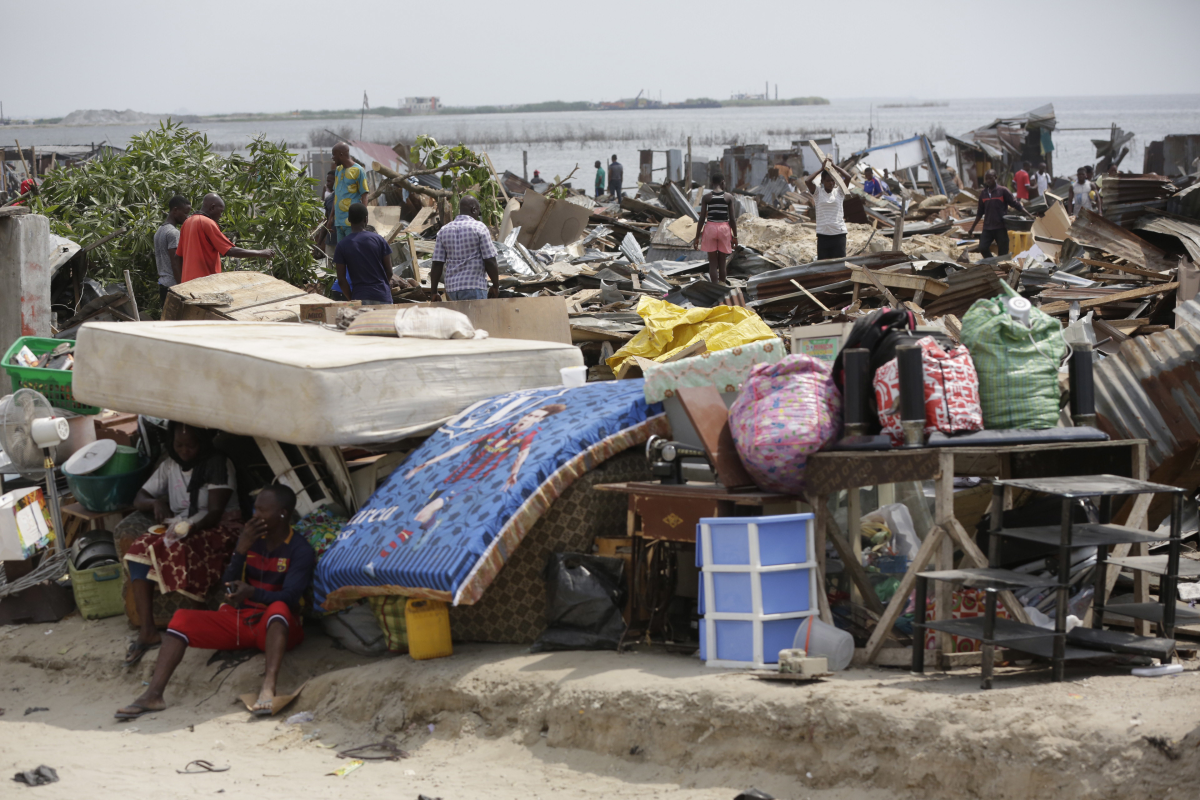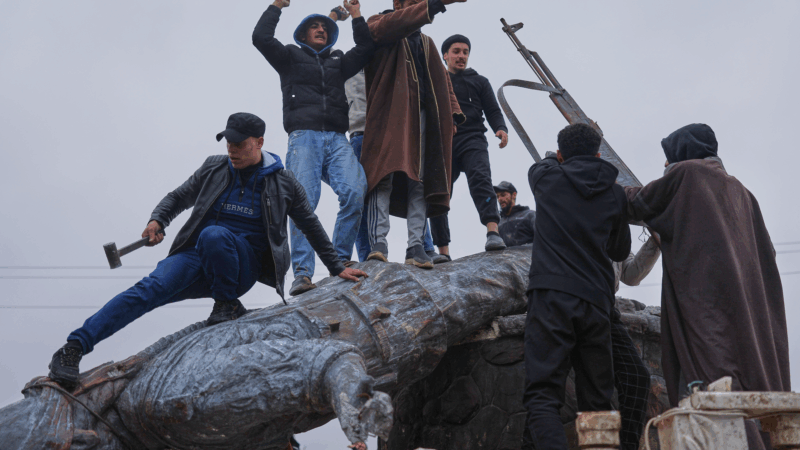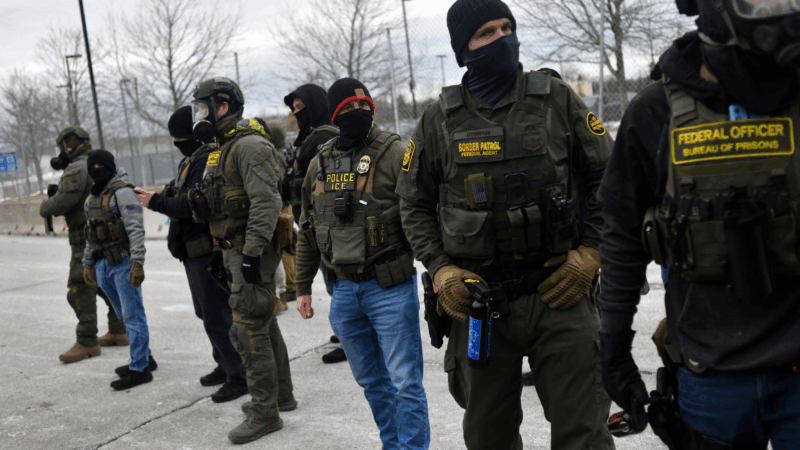A Lagos community, destroyed in one day
LAGOS, Nigeria—A century old riverside community of more than 9,000 people located in Nigeria’s largest city, Lagos, was demolished on Friday and residents were forcefully evicted.
Dozens of Lagos state officials, as well as police and young men known locally as “area boys” armed with machetes and clubs entered the community of Ilaje-Otumara in the early hours of Friday, forcing thousands to flee with their belongings, as bulldozers rolled through homes, businesses and places of worship.
NPR witnessed state government officials and police watching on as residents were beaten and attacked and forced to leave without their possessions. Reporters covering the demolition, including from Agence France- Presse, were also threatened and forced out of the community, and prevented from recording evidence of the demolitions.
Mass demolitions of largely poor inner-city or waterfront communities are common in Lagos. In 2017, Otodo-Gbame, a community of 30,000 people were evicted, despite orders prohibiting it. In Tarkwa Bay, a coastal community, close to 5,000 people were evicted in 2020.

In 2017, A Lagos State High Court barred the state government from evicting residents from Ilaje-Otumara and other communities in Lagos under threat of eviction without providing an alternative settlement.
In the judgement, the Court described attempts to evict the residents as “unconstitutional” and “an infringement on their fundamental right to protection from cruel and degrading treatment”.
But in February this year, state government officials returned to mark the community for demolition and gave residents 15 days to evacuate.
On Friday residents of Ilaje-Otumara, woke up to demolition equipment and armed men, giving them only moments to collect their belongings and leave. Hundreds of residents fled clutching their belongings or carrying them away on their heads, to the surrounding streets. Heaps of personal items were left on the roadside by many with nowhere to go.

Yemi Oladapo, a single mothers said she was driven away by gunmen as she tried to pick her belongings from her demolished home.
“No notice, nothing. They didn’t even give us another space to go to. And no compensation,” she said. “Are we not Nigerians? Are we not human beings?”
Just Empowerment Initiative, a Lagos-based rights group helping Ilaje-Otumara and several other communities, said the destruction is just the latest in a series of demolitions mainly targeting riverside communities in Lagos, which are considered prime sites for luxury housing developments. The Lagos real estate market is worth billions of dollars and over 40 percent of Lagos’ real estate is investor-owned.
The community first settled there in 1920, with many families spanning multiple generations, owning government issued documents proving their rights to their land and property. But threats of eviction have intensified over the last decade. Some residents said they were resigned that the government could force them out but pleaded with officials to move them elsewhere.
45-year-old Albert Bamidele has lived in Ilaje-Otumara for 30 years, said that he had hoped that if they did face eviction, it would be done with dignity. But on Friday, that wasn’t the case.
”All of a sudden, we saw them this morning with bulldozers. Not even giving time. Just demolishing our property. Beating people. Carrying sticks, cultasses, other dangerous weapons. We’re not even saying we won’t go, don’t just treat us this way.”
62-year-old Adeto Banbade was born in Ilaje-Otumara and lived in a family home in the community with her children and 85-year-old mother. She said they were forced to leave most of their possessions and had nowhere to go.
“I’ve never slept on the street all my life, but now in my twilight years, this is what they’ve done to me.”
European leaders warn Trump’s Greenland tariffs threaten ‘dangerous downward spiral’
In a joint statement, leaders of eight countries said they stand in "full solidarity" with Denmark and Greenland. Denmark's Prime Minister Mette Frederiksen added: "Europe will not be blackmailed."
Syrian government announces a ceasefire with the Kurdish-led Syrian Democratic Forces
Syria's new leaders, since toppling Bashar Assad in December 2024, have struggled to assert their full authority over the war-torn country.
U.S. military troops on standby for possible deployment to Minnesota
The move comes after President Trump again threatened to invoke the Insurrection Act to control ongoing protests over the immigration enforcement surge in Minneapolis.
Martin Luther King Jr. had a dream … about health care
A doctor from Nigeria tells what Martin Luther King Jr. taught him about health, Justice and inequality.
Sunday Puzzle: It takes two
Ilyse Levine-Kanji of Westborough, Massachusetts plays the puzzle with Weekend Edition Puzzlemaster Will Shortz and host Ayesha Rascoe.
Venezuela: Maduro’s enforcer Cabello still central to power
The ousting of Venezuela's president raised hopes of change — but the politician now controlling the streets shows how little has really shifted.








